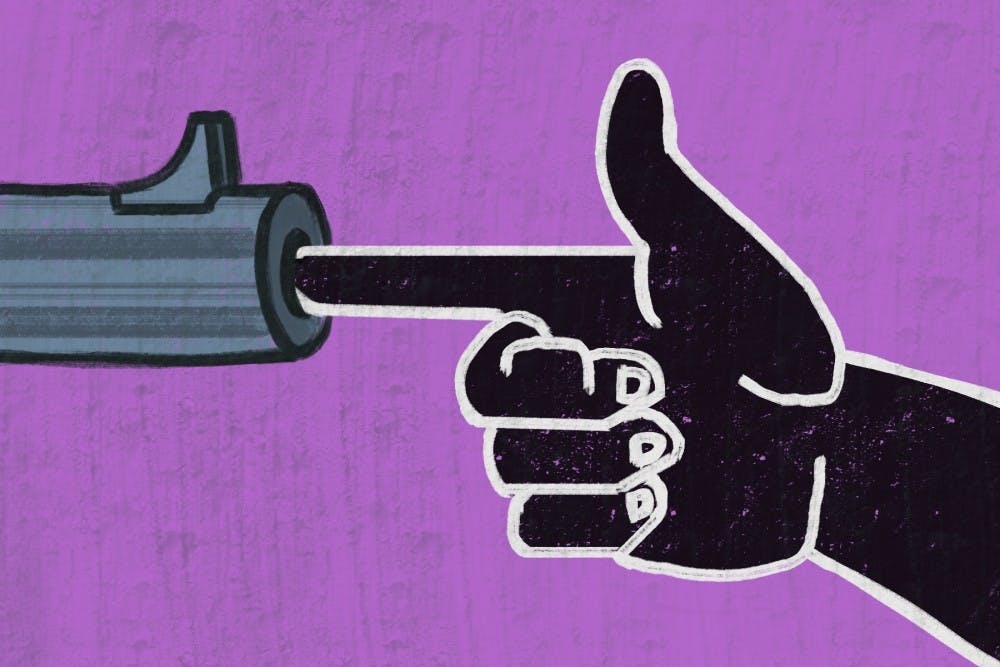The United States has a gun problem.
So far, in 2018, there have been 323 mass shootings, according to data from the Gun Violence Archive.
The regularity of mass shootings in this country has made it increasingly clear that the issue needs to be addressed — and this should start with research.
In the wake of this, 73 percent of young people feel that gun laws should be stronger, according to a YPulse survey commissioned by Giffords and Everytown for Gun Safety.
As movements such as March For Our Lives have mobilized and united students across the country in response to mass shootings, young people evidently care about stopping gun violence.
While the U.S. should strongly consider following the lead of analogous countries by enacting laws to combat gun violence, no country faces the exact gun issues as the U.S. — Americans alone own nearly half of all civilian-owned guns in the world — and research is an important first step in addressing this problem.
Unfortunately, at the federal level, heavy barriers exist to researching gun violence in the U.S.
"It is a huge problem that is essentially being unaddressed by the research community, and it's not because we don't want to address it," said Sherry Towers, a research professor at ASU who studies mass shootings.
The Dickey Amendment, lobbied for by the National Rifle Association and passed in 1996, mandates that funds allocated to the Centers for Disease Control and Prevention could not be used "to advocate or promote gun control."
While the legislation didn't explicitly ban gun research, funding cuts reduced research by 90 percent, according to Dr. Mark Rosenberg, the former director of the CDC's National Center for Injury Prevention and Control, in an NPR article.
“If I was looking at anything else that had an equal impact on society (such as gun violence), I would be able to get grant money to look at it," Towers said. "The federal grant money is almost non-existent for looking in to firearm violence because of politics, essentially.”
Ultimately, Towers hopes that students understand that the lack of funding for gun violence research is an issue, and that they can demand better.
"Students can use their political voice to speak up and ask, 'Why aren't we funding firearm violence research?'" said Towers. "Why aren't we as a society putting effort and money in to understanding this problem better? — particularly with ASU, which is a huge research university."
Today’s college students have grown up in an age where mass shootings are an accepted part of daily life, and inaction is expected, even if it's protested.
The issue of gun violence in this country is a public health crisis, and should be treated accordingly.
College students especially should understand the value of research and want to dissect and understand the issues the U.S. faces so they can be properly addressed.
A diagnosis is needed for the U.S.'s gun problem, and, in this case, that starts with research at the university level.
Reach the columnist at cldoming@asu.edu and follow @chuck_dominguez on Twitter.
Editor’s note: The opinions presented in this column are the author’s and do not imply any endorsement from The State Press or its editors.
Want to join the conversation? Send an email to opiniondesk.statepress@gmail.com. Keep letters under 500 words and be sure to include your university affiliation. Anonymity will not be granted.
Like The State Press on Facebook and follow @statepress on Twitter.




